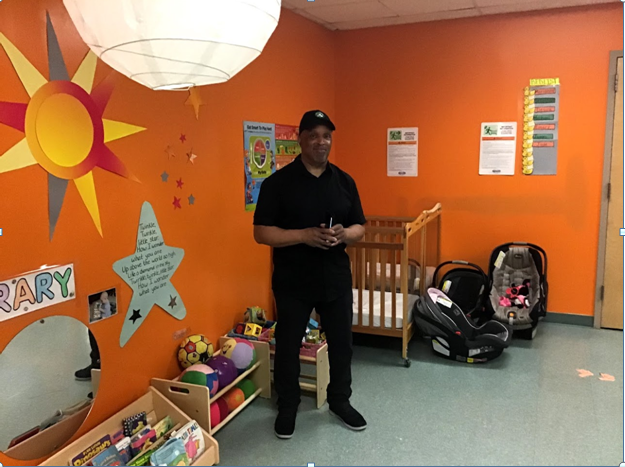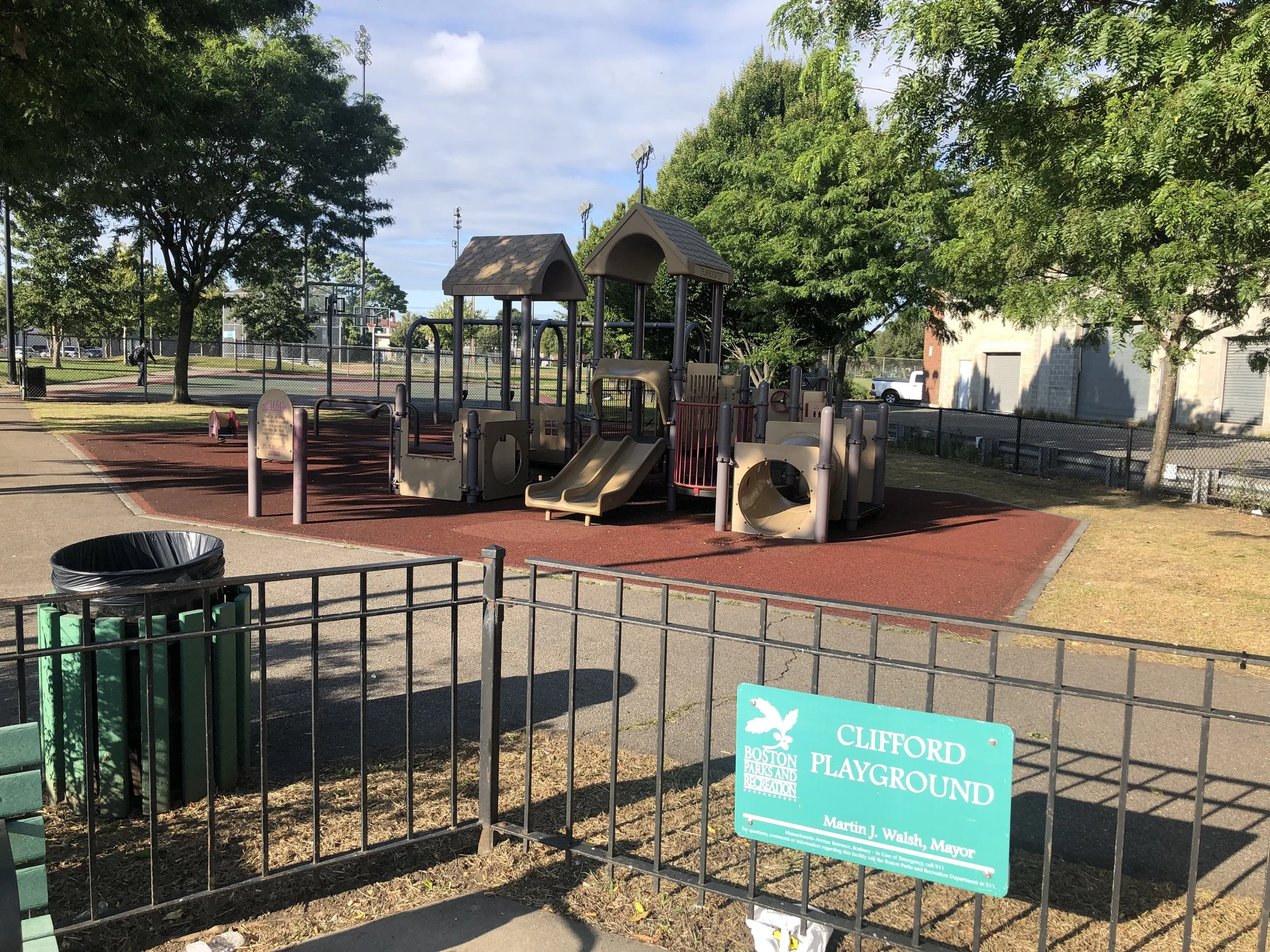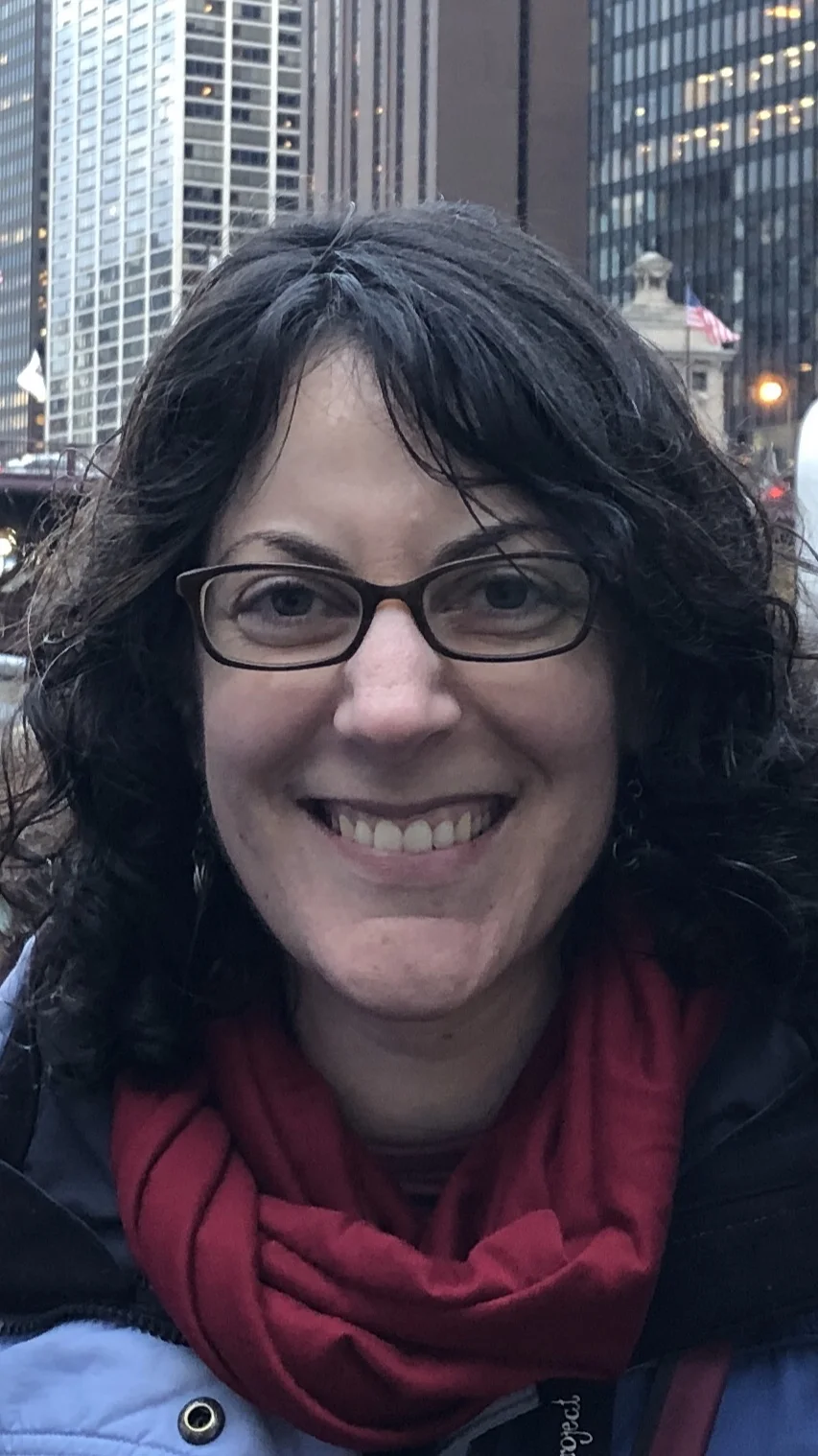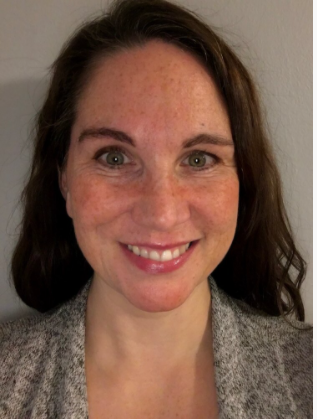Early Educator Spotlight Interview with Clarence Little
Our latest spotlight interview is with Clarence Little who has a long and wide ranging career in the field of early childhood education and care.
Question 1: What types of experiences have you had working in the early childhood education field?
I have worked in the early childhood field for many years in many different capacities. I started my early childhood career at Putnam Children’s Center on Townsend Street. I was the teaching assistant to a behavioral therapist. We conducted 2 hour therapeutic sessions with small groups of 6 preschool age children. This was a great learning experience for me. I was a sophomore at Northeastern University. On every Friday we would all meet with the psychologist and therapists to discuss a case study and go over the possible options as we discussed the issues with the child and family. I left after a year and a half to switch my major to child psychology. At the same time my mother and aunts decided to open Wee Toddlers Childcare Center. I started out helping out and never left.
We expanded over time to 3 centers. We now have our one center Grove Hall Child Development Center in Mattapan. Throughout my career I have been a driver for many years, a teacher including a Head Start teacher, Ed Coordinator, cook and a Director as well as anything else that needed to be done. Over the last 15 years I have been a mentor and coach working with BAEE, BAEYC and EPS. I am looking forward to working with UMass and the PDC’s to keep pushing for universal recognition of the professionalism of early childhood education and care. I am striving to deliver high quality services to all children and families of Massachusetts regardless of the challenges. I am currently a member of the EEC Workforce Coalition.
Question 2: Were there any college courses, mentors, or professional development experiences that stood out as being helpful to your work?
I have always believed in being and fostering the desire in others to be lifelong learners. I have attended classes at many schools and Universities. The list includes BU, RCC, Quincy College, Lesley College, Cambridge College and Urban College. I would have to say my most rewarding courses were at UMass Boston and graduate courses at Wheelock. I was in the Building Careers program at UMass and CSPCS. The mentors I had through this program are almost to many to mention. There were a few who really stood out. Mary Lu Love, Joan Arches, Joanne Benn, Lisa Van Theil and Cuf to name a few. My experience at Wheelock was also very rewarding there my mentors were Susan MacDonald, David Fernie, Susan Zoll and Mary Avery Watson once again to name a few.
My professional development experiences were immense. They help to mold my professionalism and commitment to the children, families and my colleagues in the field. Starting with my Aunt Ruth taking me with her to BACOD meetings, if anyone can remember that far back. Working with the Directors Group at BAEE, there my mentors Eileen Bisson and Pat Xavier, that is also where I met Lynne Mendes and Vicky. Working with Haji Shearer at the Children’s Trust Fund to become a facilitator of Parent Cafes and other trainings was great.
My other experiences have been The Greater Boston Master Cadre for WIDA promoting bilingual inclusion, Department of Elementary and Secondary Education training to be a trainer for Social Emotional Learning/Approaches to Play and Learning, EEC’s Early Educators Initiative Fellowship and Environmental Rating Scales training, Boston Medical Center’s Healthy Child Initiative, Tech Goes Home trainer, Pyramid Model training at Wheelock and BAEYC Board of Directors. Throughout my years I would say I have always had at least 70 to 100 hours of continuing education every year, my wife will definitely verify that LOL. I even have Minority Developer training through the Center for Real Estate at MIT. I worked part time with my father in real estate for many years. This really helped me with public speaking and getting over my natural shyness.
I did however have three professional development experiences that were very influential. LEAP with Amy O’Leary was one of the first. It really opened my eyes to the research about the field on a national and global level. It got me to join NAEYC and to take numerous online courses around the country. It also lead me to The Human side of Management and Holly Bruno.
Then there is UMass Boston. All of my involvements with the university have been stellar. Culminating in my involvement in the BSC. That was a great experience and learning opportunity, especially since it involved my entire center giving all of us access to the great team leaders and mentors working with Professor Anne Douglas that ran the program and connecting us to others in our childcare community.
Professionally my greatest experience was becoming a Schott Fellow with Dr. Valora Washington. That was a yearlong experience where I learned so much from her Marie Enocty and so many more. I made so many lifelong friendships and professional colleagues that I can’t fully express my appreciation for how that has and continues to affect my professionalism.
Question 3: Only about 5 percent of the people in ECE are men. Do you think being a man in the field has given you any extra opportunities or extra difficulties in your career? If so, what?
For one thing I never have to wait in line for the facilities when I go to conferences. It is really sad that there aren’t more males in the field. I think men bring a different perspective to the center and the classroom at all ages. The men in the field that I have known have been very nurturing and connect with the children and families in a very positive manner. I have been a member of Men Teach for many years and was honored to run the Men’ PLC last year, something I hope to continue this year. Honestly I think it has given me many opportunities to be included in programs and directives because we stand out among a field dominated by women. I have run into parents throughout my career who are apprehensive about having a man interact with their children, particularly some cultures. I must say after they really get to know me and the connections I form with their children they always come to appreciate my presence. One of my missions has always been to work towards a formula that fully funds childcare and makes it more attractive and financially rewarding as a professional choice. This I think can help to bring more men into the profession throughout the educational system, including elementary and secondary educators.
Question 4: If you could talk to politicians and policy makers about early childhood education and care, what would you tell them?
With all of the research on brain development and the importance of the early years for learning and social emotional growth, how can we avoid looking at how to fully fund early childhood education and care. It needs to be a right and priority just as public education is now starting in kindergarten. If we establish this as an essential then the proper funding formulas need to be established to make a robust high quality system sustainable. It has always been my belief that the system has to be a collaboration of public and private funding sources. The future of our planet and the corporate stability depends on it. Clearly our society needs to give our future leaders and citizens a strong social emotional foundation in an effort to minimize the self-destructive behavior and violent outburst we experience all to often.
Question 5: What makes you optimistic about the future or ECE and what do you think are the biggest challenges to improving quality?
I am very optimistic about the future of ECE. Over the years I have seen the incredible strides towards professionalism and recognition. The students I see now are so much more attuned to the social emotional needs of our children and families, as well as the need to facilitate optimal growth across all domains. The emphasis on the whole body, mind and soul if you will is encouraging. The field and our knowledge with all of the research and initiatives in our profession, gives us an ever expanding base of information. Look how we have changed in the last 20 years, 10 years and 5 years. I look forward to what the future brings.
I think as always the biggest obstacle is to identify what works best, make it self-reflective with the ability to adjust when necessary. The Big obstacle is fully and adequately funding the programs and professional recognition. I am in fact also optimistic about this as well. I think more and more society is awakening to the value of our endeavors. As politician, CEO’s, governments and world leaders in every field and our global citizens see the logic and value of our proposals we will continue to win them over.





